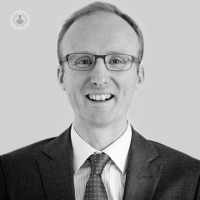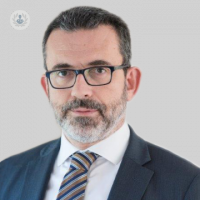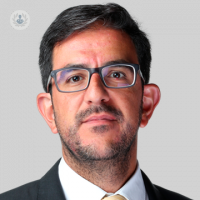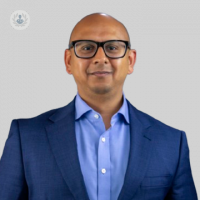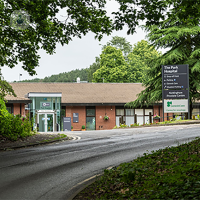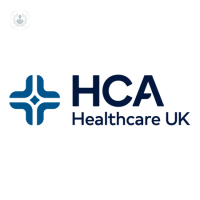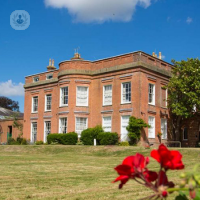What is cardiomyopathy?
Cardiomyopathy is disease of the heart muscle. It is something of an umbrella term for a number of conditions that affect this tissue. Cardiomyopathies may cause the walls of the heart chambers to become stiff, thickened, or stretched, which can put strain on the heart as it must work harder to pump blood around the body.
Types of cardiomyopathy
Types of cardiomyopathy include:
- Dilated cardiomyopathy (DCM)
- Hypertrophic cardiomyopathy (HCM)
- Arrhythmogenic right ventricular cardiomyopathy (ARVC)
- Restrictive cardiomyopathy (RCM)
- Left ventricular noncompaction (LVNC)
- Peripartum cardiomyopathy (PPCM)
- Takotsubo cardiomyopathy (broken heart syndrome)
Prognosis of cardiomyopathy
Most forms of cardiomyopathy have no cure. Cases of mild cardiomyopathy can usually be managed with lifestyle changes and monitoring the condition. More severe cases can lead to life-threatening complications without treatment to control the symptoms.
Takotsubo cardiomyopathy, on the other hand, is temporary and reversible if caught and treated in time. This can come on suddenly like a heart attack and must be dealt with immediately by the emergency services. It is unlikely to happen again to the same individual.
Symptoms of cardiomyopathy
Different cardiomyopathies affect the heart in different ways. Dilated cardiomyopathy can cause heart valve problems, an irregular heartbeat, blood clots, or heart failure, with associated symptoms of fatigue, shortness of breath, and swelling around the ankles. Hypertrophic cardiomyopathy, on the other hand, can lead to atrial fibrillation and mitral regurgitation, which can cause symptoms of dizziness, chest pain, shortness of breath and temporary loss of consciousness. Broken heart syndrome can feel a lot like a heart attack, with symptoms of chest pain and difficulty breathing.
Medical tests to diagnose cardiomyopathy
Tests such as echocardiograms and electrocardiograms (ECG) can help to diagnose cardiomyopathy. Inherited forms may also be diagnosed by genetic testing.
What are the causes of cardiomyopathy?
Dilated cardiomyopathy (DCM), hypertrophic cardiomyopathy (HCM), and arrhythmogenic right ventricular cardiomyopathy (ARVC) are most commonly inherited, often running in families. Restrictive cardiomyopathy can sometimes be inherited, but in many cases the cause is unknown.
Takotsubo cardiomyopathy is brought on by physical and/or emotional stress, with a sudden surge of adrenaline or hormones temporarily weakening the heart muscle.
Treatments for cardiomyopathy (include types – ASK DOCTORS)
Treatment for cardiomyopathy generally involves managing the symptoms and preventing complications. Lifestyle measures may include:
- Healthy diet
- Quit/avoid smoking
- Maintain a healthy weight
- Avoid/reduce alcohol intake
- Reduce stress
- Get enough sleep
The following medications may be recommended by the doctor:
- Blood pressure medication
- Beta-blockers for an irregular heartbeat or heart failure
- Diuretics – if the cardiomyopathy has caused swelling, these help remove fluid from the body.
- Anticoagulants, e.g. warfarin – these help prevent blood clots.
- Medication for heart failure
Some patients may require hospital procedures, including heart surgery or the fitting of a pacemaker. In particularly severe cases, a last resort could be a heart transplant.
Which type of specialist treats cardiomyopathy?
Cardiologists treat the various types of cardiomyopathy.
06-11-2019Cardiomiopatia
What is cardiomyopathy?
Cardiomyopathy is disease of the heart muscle. It is something of an umbrella term for a number of conditions that affect this tissue. Cardiomyopathies may cause the walls of the heart chambers to become stiff, thickened, or stretched, which can put strain on the heart as it must work harder to pump blood around the body.
Types of cardiomyopathy
Types of cardiomyopathy include:
- Dilated cardiomyopathy (DCM)
- Hypertrophic cardiomyopathy (HCM)
- Arrhythmogenic right ventricular cardiomyopathy (ARVC)
- Restrictive cardiomyopathy (RCM)
- Left ventricular noncompaction (LVNC)
- Peripartum cardiomyopathy (PPCM)
- Takotsubo cardiomyopathy (broken heart syndrome)
Prognosis of cardiomyopathy
Most forms of cardiomyopathy have no cure. Cases of mild cardiomyopathy can usually be managed with lifestyle changes and monitoring the condition. More severe cases can lead to life-threatening complications without treatment to control the symptoms.
Takotsubo cardiomyopathy, on the other hand, is temporary and reversible if caught and treated in time. This can come on suddenly like a heart attack and must be dealt with immediately by the emergency services. It is unlikely to happen again to the same individual.
Symptoms of cardiomyopathy
Different cardiomyopathies affect the heart in different ways. Dilated cardiomyopathy can cause heart valve problems, an irregular heartbeat, blood clots, or heart failure, with associated symptoms of fatigue, shortness of breath, and swelling around the ankles. Hypertrophic cardiomyopathy, on the other hand, can lead to atrial fibrillation and mitral regurgitation, which can cause symptoms of dizziness, chest pain, shortness of breath and temporary loss of consciousness. Broken heart syndrome can feel a lot like a heart attack, with symptoms of chest pain and difficulty breathing.
Medical tests to diagnose cardiomyopathy
Tests such as echocardiograms and electrocardiograms (ECG) can help to diagnose cardiomyopathy. Inherited forms may also be diagnosed by genetic testing.
What are the causes of cardiomyopathy?
Dilated cardiomyopathy (DCM), hypertrophic cardiomyopathy (HCM), and arrhythmogenic right ventricular cardiomyopathy (ARVC) are most commonly inherited, often running in families. Restrictive cardiomyopathy can sometimes be inherited, but in many cases the cause is unknown.
Takotsubo cardiomyopathy is brought on by physical and/or emotional stress, with a sudden surge of adrenaline or hormones temporarily weakening the heart muscle.
Treatments for cardiomyopathy (include types – ASK DOCTORS)
Treatment for cardiomyopathy generally involves managing the symptoms and preventing complications. Lifestyle measures may include:
- Healthy diet
- Quit/avoid smoking
- Maintain a healthy weight
- Avoid/reduce alcohol intake
- Reduce stress
- Get enough sleep
The following medications may be recommended by the doctor:
- Blood pressure medication
- Beta-blockers for an irregular heartbeat or heart failure
- Diuretics – if the cardiomyopathy has caused swelling, these help remove fluid from the body.
- Anticoagulants, e.g. warfarin – these help prevent blood clots.
- Medication for heart failure
Some patients may require hospital procedures, including heart surgery or the fitting of a pacemaker. In particularly severe cases, a last resort could be a heart transplant.
Which type of specialist treats cardiomyopathy?
Cardiologists treat the various types of cardiomyopathy.


Sports cardiology: Heart conditions in athletes
Dr Anita Arya
2025-01-18
Leading consultant cardiologist Dr Anita Arya takes an in-depth look at sports cardiology, more specifically heart conditions in athletes including common ones identified during pre-participation screenings, how patients can participate in sport safely, or if they’ve experienced a cardiac event, what processes are involved in ensuring they can return to activities. Mostrare di più


It runs in the family: inherited heart disease
Professor Sanjay Sharma
2025-01-18
Inherited heart diseases are conditions that affect the heart and cardiovascular system caused by geentic abnormalities that are passed down from a parent to their offspring. Leading consultant cardiologist, based in London, Professor Sanjay Sharma explains this further. He discusses how these conditions are tested for and whether they can be prevented or are more likely to be passed from one parent than another. Mostrare di più
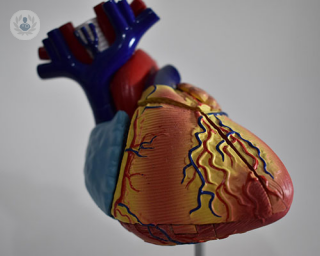

Dry January: drinking alcohol and the links between heart disease, alcohol consumption and hypertension
Dr Jonathan Hasleton
2025-01-18
Every January, many people across the UK decide to take part in ‘Dry January’, meaning they abstain from alcohol for the month. This can have numerous benefits, including improved cardiovascular health. Dr Jonathan Hasleton, a consultant cardiologist at the renowned Venturi Cardiology clinic, offers his expert insight into the effects of alcohol on the heart. Mostrare di più


An expert overview of left ventricular outflow tract obstruction (LVOTO)
Dr Antonis Pantazis
2025-01-17
Mostrare di più
Medici esperti in Cardiomiopatia
-
Dr Nick Linton
CardiologiaEsperto in:
- Fibrillazione atriale
- Aritmie
- Ipertensione arteriosa
- Cardiomiopatia
- Infarto/ angina pectoris
- Soffio cardiaco
-
Dr Sabiha Gati
CardiologiaEsperto in:
- Cardiologia sportiva
- Cardiomiopatia
- Screening cardiaco
- Risonanza Magnetica cardiaca
- Ecocardiogramma
- Prova sotto sforzo
-
Dr Antonis Pantazis
CardiologiaEsperto in:
- Cardiomiopatia
- Tachicardia ventricolare (TV)
- Ecocardiogramma
- Studi genetici
- Insufficienza cardiaca
- Pericardite
-
Professor Michael Papadakis
CardiologiaEsperto in:
- Cardiologia sportiva
- Screening cardiaco
- Condizioni cardiache ereditate
- Cardiomiopatia
- Controllo cardiologico
- Cardiologia preventiva
-
Dr Kaushik Guha
CardiologiaEsperto in:
- Insufficienza cardiaca
- Cardiomiopatia
- Fibrillazione atriale
- Dolore toracico
- Defibrillatore
- Pacemaker
- Visualizzare tutti

The Park Hospital - part of Circle Health Group
The Park Hospital - part of Circle Health Group
Sherwood Lodge Drive, Burntstump Country Park, Arnold, Nottinghamshire NG5 8RX
No existe teléfono en el centro.
Se utilizzi questo numero di Top Doctors autorizzi al trattamento dei dati a fini statistici e commerciali. Per maggiori informazioni, leggi la nostra l’informativa sulla privacy
Top Doctors

The Harley Street Clinic - part of HCA Healthcare
The Harley Street Clinic - part of HCA Healthcare
35 Weymouth Street, London. W1G 8BJ
No existe teléfono en el centro.
Se utilizzi questo numero di Top Doctors autorizzi al trattamento dei dati a fini statistici e commerciali. Per maggiori informazioni, leggi la nostra l’informativa sulla privacy
Top Doctors

Goring Hall Hospital - part of Circle Health Group
Goring Hall Hospital - part of Circle Health Group
Bodiam Ave, Goring-by-Sea, Worthing BN12 5AT
No existe teléfono en el centro.
Se utilizzi questo numero di Top Doctors autorizzi al trattamento dei dati a fini statistici e commerciali. Per maggiori informazioni, leggi la nostra l’informativa sulla privacy
Top Doctors
-
The Park Hospital - part of Circle Health Group
Sherwood Lodge Drive, Burntstump Country Park, Arnold, Nottinghamshire NG5 8RX, ArnoldEsperto in:
- Chirurgia generale
- Chirurgia maxillo facciale
- Chirurgia orale
- Chirurgia plastica, estetica e riparatrice
- Ginecologia e Ostetricia
- Podologia
-
The Harley Street Clinic - part of HCA Healthcare
35 Weymouth Street, London. W1G 8BJ, Central LondonEsperto in:
- Tumori
- Il cancro della testa e del collo
- Cardiologia
- Terapia intensiva
- Diagnostica per immagini
- La salute delle donne
-
Goring Hall Hospital - part of Circle Health Group
Bodiam Ave, Goring-by-Sea, Worthing BN12 5AT, Goring-by-SeaEsperto in:
- Anca
- Cataratta
- Chirurgia della cistifellea
- Chirurgia generale
- Chirurgia ortopedica
- Ernia
- Visualizzare tutti
